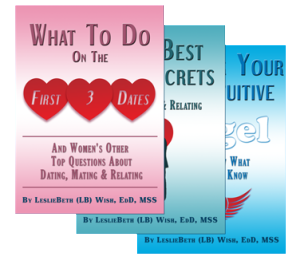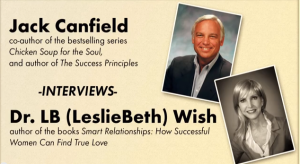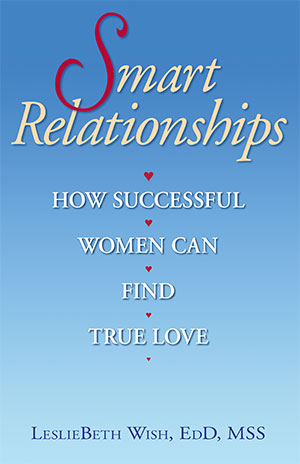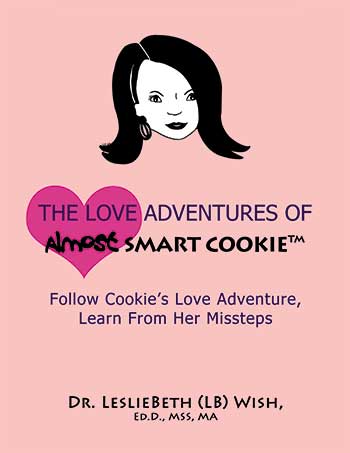Part 3 in a Series on unhealthy relationships.
 When you tell your trusted friends, family members or therapist about your unhappiness in your relationship, they might give you wise advice, but you probably still have a sentence or two going round in your head that sounds something like this:
When you tell your trusted friends, family members or therapist about your unhappiness in your relationship, they might give you wise advice, but you probably still have a sentence or two going round in your head that sounds something like this:
“Yes, but…you don’t really know him. He’s a good guy…”
You could even nod your head or say, “I know, I know…”
They mean well, you tell yourself, yet you have doubts. Could they right?
Breaking up with someone is no easy decision—even if it is the best and healthiest decision for you. There are many reasons that people stay in bad relationships.
The top reasons include:
1. Inability to support yourself financially
2. Childcare responsibilities for young children
3. Your health issues
4. Feelings of shame and embarrassment
5. Fear of your family or community’s judgment
6. Religious restrictions
7. Fear of loneliness and the unknown
8. Low sense of self-worth
9. Doubts about your assessment of the relationship
10. Discomfort of being judgmental, disloyal or unappreciative of your partner.
All the items on this list are important issues, but some really cloud your ability to open your eyes and see your relationship correctly. Take a look again at numbers 7, 8, 9, and 10. If you can overcome these roadblocks, then you will have an easier time making changes and decisions, and bringing up those “hot topics” that make you unhappy.
We tend to be most blind or dismissive of the big, red, flashing warning lights from our partners when the thought of leaving or rocking the boat increases our loneliness, low self-worth, doubts and discomfort of being seen as a “bad person”—all the issues in numbers 7-10.
One way to quiet these key items is to postpone these big decisions until you learn to build trust in your reactions, feelings and thoughts. But how do you do that?
You might remember that in the first article in this series, Checklists and Reminders, I talked about developing mindfulness.—the ability to become aware of your feelings, behavior and physical reactions when you are with your partner. Your reactions are signs that teach you about what’s going on in you at the moment.
You learn about your emotional hot buttons, why you have them—and where they came from in the first place. When you become your own detective, you automatically put yourself in a healthy process that creates trust, emotional bravery, self-awareness and self-care. You won’t have to be in as much as a muddle because your observations will lead you down a path of wiser choices that might include leaving, speaking up or developing more productive communication patterns.
Below is a guide to help you fortify your mindfulness experience. But I do need to add a warning. If you feel in danger of your and your family’s life or safety or if you are harmed or abused, physically, sexually or financially; then you most likely need to take any or all of the following actions:
1. Call 911.
2. Seek guidance ahead of time from your local women’s domestic violence organization and/or your therapist or physician. Develop a safety plan.
3. Leave the house, taking money, credit cards, necessary medication, children and any other critical things.
4. Do not threaten your partner with leaving.
5. Do not announce that you are leaving or planning to leave.
(These last two items are important because abusers become most dangerous when they sense that they have lost you—and control over you.)
If you are not in danger, then let’s start with some ways for you to build a more objective and solid belief in you and your trust in your reactions.
Increasing Your Self-Awareness
1. Make a chart. Keep a hidden file of this chart about your observations on your computer or at work or in your home. The chart has the following columns:
The Event My Physical Reactions My Feelings My Thoughts
To use this chart, if possible, excuse yourself from the situation by saying things such as: “I have to go to the bathroom.” “I need time to calm down or think.” “I need a drink of water.”
If you can’t get away, then stay where you are (as long as you are not in danger), and be silent while you fill the columns in your mind. Later, you can write in your file.
2. Describe in a few words the event. You might write: Argued about the holidays
3. Do a Body Reaction Scan. Begin with your head and work your way down your body. Ask yourself questions about each major body part: your head, neck, shoulders, lungs, heart, stomach, hands and fingers, legs and knees.
For example, does your head ache? Do you feel dizzy, faint or “cotton-headed” and can’t think? Does your neck hurt? Are you having trouble breathing? Is your heart pounding? Is your stomach churning? Do you feel nauseous? Are your arms and fingers twitching? Do you feel like running away or kicking something? Briefly write your bodily reactions in the My Physical Reactions column.
4. Observe your feelings. Do you feel shamed? Belittled? Dismissed? Angry? Hurt? Afraid? Mistreated? Write down words that describe your feelings in the feeling column.
5. Become aware of your thoughts. What are you thinking? Here are some top categories to consider as you write them in your Thoughts column:
What adjectives would describe my partner’s behavior: Mean, insensitive, cruel, thick-headed, selfish, dulled, avoidant? Find your own words.
When have I felt this way before with my partner?
Has my family ever made me feel this way? If so, why do I believe it?
Is this feeling acceptable and healthy?
Would I want my children or best friends to feel this way? What advice would I give them if they often felt this way?
If I were both brave and smart, what would I now do?
6. Continue to take these mindful steps to help you become more aware of you. Over time, you will build trust in your judgment and greater confidence in your observations and decisions.
7. Seek professional help in problem-solving.
Here is a cartoon to show you how easy it is to doubt your judgment and self-awareness. (This cartoon comes from my research-based, self-help book, “The Love Adventures of Almost Smart Cookie.”

If Cookie had an Awareness Chart, she’d write:
Event: Joe criticizing me
Physical Reactions: Sick
Feelings: Confused, Inadequate, Unappreciative
Thoughts: My mother always scolded me. I always seemed to disappoint her. Joe makes me feel as I do with my mom.
New, smart and brave thoughts: I wasn’t doing anything wrong. No man should talk to me or make me feel like that.
Keep your eyes open and your mind sharp! You can find the information you need to guide you toward smart actions and decisions.
Thank you for your interest. Please send me your story or tips. And please follow me on Twitter @LeslieBeth Wish and on Facebook.







